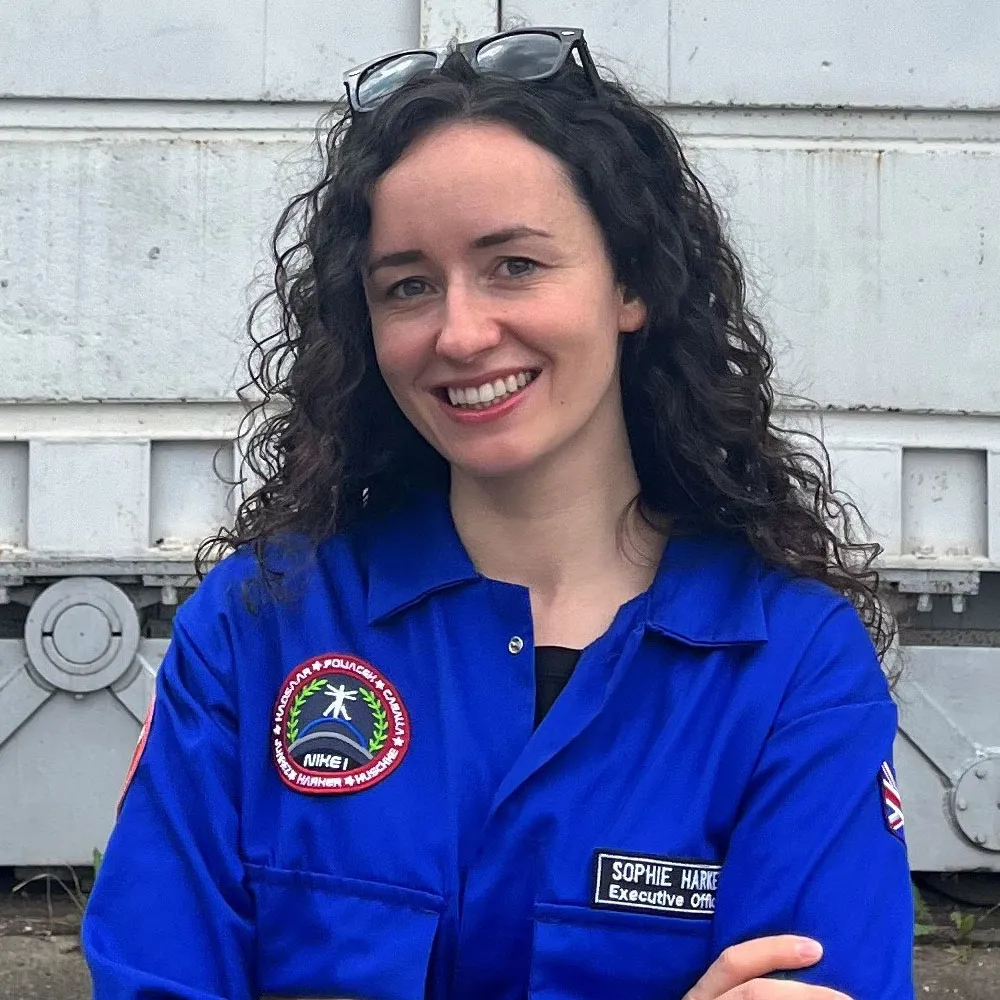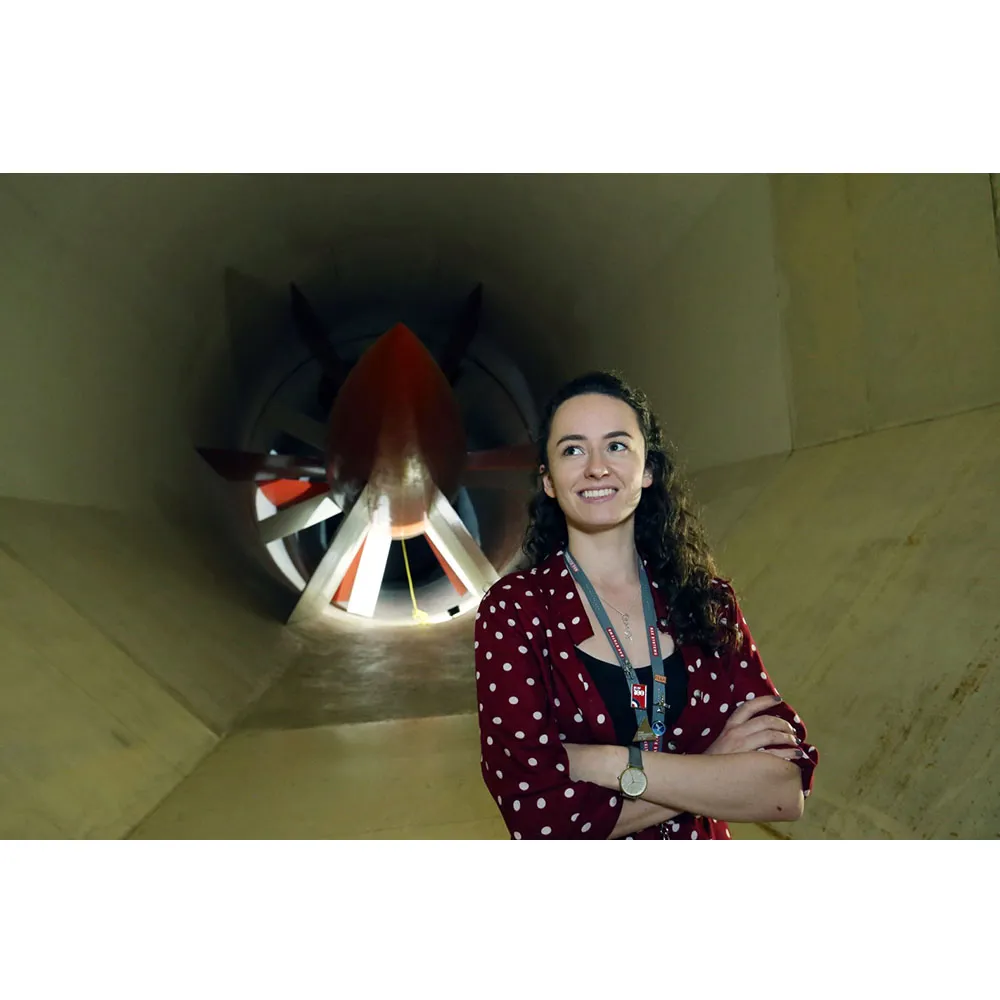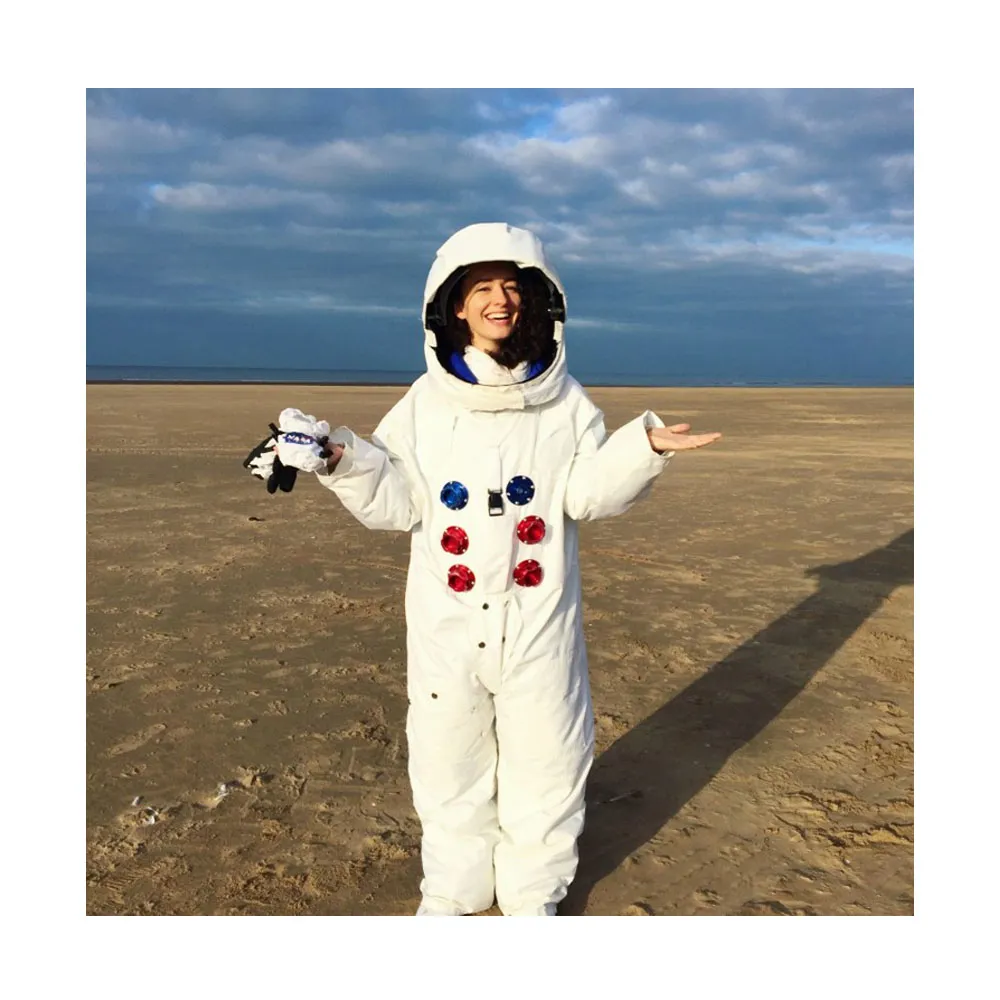Sophie Harker
Job Title: Assistant Chief Engineer of Electric Products
Company you work for: BAE Systems
When you were a child, what did you want to be when you grew up?
When I was much younger, I didn’t know what I wanted to be when I grew up. However, once I turned 16 years old, I went to Kennedy Space Centre and I decided I wanted to be an astronaut – and I still do!
What is the biggest impact your work will or could have in the future?
Currently I work on electric aircraft, making sure that they’re fully sustainable. We do this by looking at everything from aircraft performance to the carbon footprint of the batteries, and how we recycle the aircraft when it’s no longer needed. This will have a big impact on reducing carbon emissions and other sustainability challenges of flying.
What excites you most about STEM?
The best thing about being an engineer is that I get to leave a legacy. Working on ‘green technology’ and in sustainability is exceptionally rewarding and is a legacy I’m proud to leave.
What or who inspired you to do your job, and what do you love the most about it?
While studying maths at university, I met Dr Helen Sharman, the first British person in space, and she inspired me to look into engineering. I have since worked on hypersonic aircraft that travel faster than the speed of sound, spaceplanes that can fly in space as well as in Earth’s atmosphere, and now electric aircraft. I love that I get to make a difference with the work that I do and contribute to solving some of the most complex problems in the world.
How might your role work in space, sport or on the Moon in the future?
Electric vehicles (land and air!) will be essential for space exploration in the future – after all, the first electric car was the moon buggy in 1971! Additionally, my engineering skills are transferrable to lots of problems and could be applied to lots of applications including rockets, rovers and spacesuits.



What do you think the future for humans in space looks like?
It’s a really exciting time for human spaceflight right now, with the Artemis missions and the Lunar Gateway leading the way. These missions will hopefully establish a permanent settlement on the moon that will allow for more science and exploration to be made than ever before, then maybe we’ll move on to Mars one day! With this, commercial spaceflight will increase exponentially and, who knows, the International Space Station may even become a space hotel that we can go to on holiday!
Would you like to play football on the Moon one day and why?
I would absolutely love to play football on the moon! I think it would be such a momentous event because playing and watching football is a very ‘human’ experience, and so to take something like that and play it on another celestial body is extremely poetic.
How does the work you do now link to our Moon United campaign to play football in the future?
Electric vehicles have been on the moon before, and a small electric drone was even recently flown on Mars, both of which are essential in space exploration! Additionally, in my spare time I’m also an Analogue Astronaut, which means I test equipment and carry out experiments in simulated lunar or Martian environments on earth. As part of the Nike, a mission I participated in this year, I even tested some of the lunar football challenges in a spacesuit.
What were your favourite subjects at school and why?
I loved maths because I loved problem solving. But I also really enjoyed lots of other subjects, including PE, art, physics, music and languages! This is one of the best parts about STEM careers… you can combine all these subjects in your work.
What advice would you give to a young person considering a career in STEM?
Find something you’re really interested in, something that excites you, and then use STEM to follow it into a future career!
